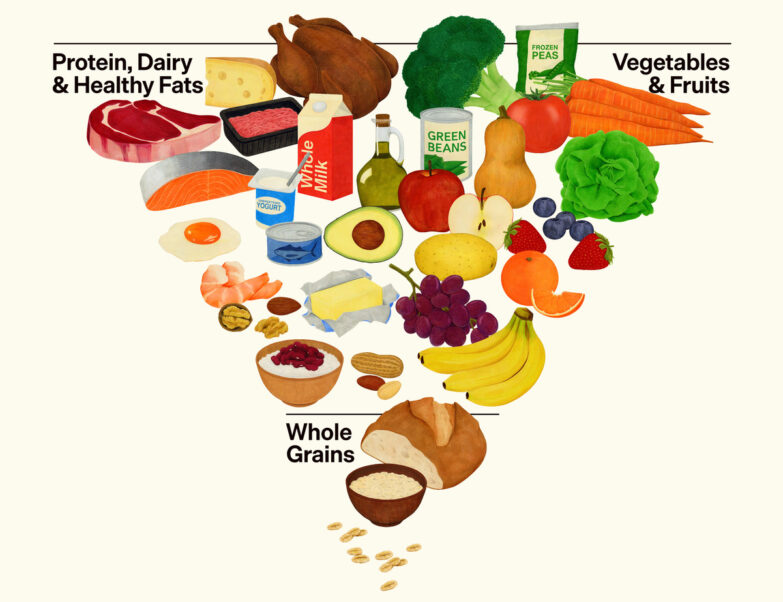Use Stress to Fuel Peak Performance

You’ve been training for a 10K. You’re ready, but when you show up on race day, your heart is pounding and you feel panicked. What should you do to lower your stress? Some people might say, “Take a deep breath.” We all know that deep breathing to calm the nervous system is a go-to strategy for dealing with stress. But is it always the best strategy?
In her work as a psychologist and a yoga and fitness professional at Stanford University, Kelly McGonigal, PhD, has found that expanding your repertoire of strategies for dealing with stress is helpful. McGonigal, author of The Upside of Stress (Penguin Random House 2015), suggests three alternative approaches.
Harness the Energy of Stress
Studies have compared the physiological responses of terrified first-time skydivers and experienced skydivers (Allison et al. 2012; Hare, Wetherell & Smith 2013). Surprisingly, they don’t differ. Heart rates go up whether people are scared or thrilled. Yet how you interpret your pounding heart and sweaty palms can be the difference between feeling panicked and feeling amped up. It turns out that choosing a positive interpretation of stress is something many elite athletes have learned to do. They don’t see stress as a barrier to performance, and they don’t view anxiety as a signal they are going to choke.
The takeaway: When you feel your heart pounding, palms sweating or mind racing, remember that these are signs of an adrenaline rush that can fuel peak performance. Remind yourself that even the most accomplished athletes, performers and leaders experience anxiety, and the most successful choose to channel their stress into energy and positive motivation.
Choose a Growth Mindset
Think of a time in your life that changed you in a positive way. Maybe you discovered your courage or developed more compassion for others. Maybe it was a turning point that forced you to make an important change.
Whatever your story is, it’s likely it was stressful while you were going through it. Psychologists know that it is through stress that we learn and grow—even if the process isn’t always fun. Difficult experiences can have positive outcomes, whether it’s personal growth from defeating obstacles or growth that can follow serious adversity.
The takeaway: Reflect on how you have grown from adversity. What past difficulties have strengthened you and given you a greater sense of your own capabilities and purpose? You can strengthen your resilience by thinking about how a stressful situation can contribute to your personal growth.
Make It About Something Bigger Than Yourself
Imagine two people in a hospital waiting room, both worried. One reaches out to hold the other’s hand, hoping to comfort her and offer compassion. Which of the two will experience greater stress relief?
Both will likely feel better, but the person who offered the compassion will get the bigger benefit. Neuroscientists have studied what happens in the brain during social support, and giving support reduces stress significantly more than receiving support (Inagaki et al. 2016). Moreover, just thinking about helping and encouraging someone else can create the same stress-relieving changes in the brain (Engen & Singer 2015).
The takeaway: Savor being part of something bigger than yourself. In a moment of stress, thinking about others who might also be struggling, or connecting to the joy of helping others, can be a powerful source of resilience.
KELLY MCGONIGAL, PHD
When you feel your heart pounding, palms sweating or mind racing, remember that these are signs of an adrenaline rush that can fuel peak performance.
References
Allison, A.L., et al. 2012. Fight, flight, or fall: Autonomic nervous system reactivity during skydiving. Personality and Individual Differences, 53 (3), 218–23.
Engen, H.G., & Singer, T. 2015. Compassion-based emotion regulation up-regulates experienced positive affect and associated neural networks. Social Cognitive and Affective Neuroscience, 10 (9), 1291–1301.
Hare, O.A., Wetherell, M.A., & Smith, M.A. 2013. State anxiety and cortisol reactivity to skydiving in novice versus experienced skydivers. Physiology & Behavior, 118, 40–44.
Inagaki, T.K., et al. 2016. The neurobiology of giving versus receiving support: The role of stress-related and social reward-related neural activity. Psychosomatic Medicine, 78 (4), 443–53.





